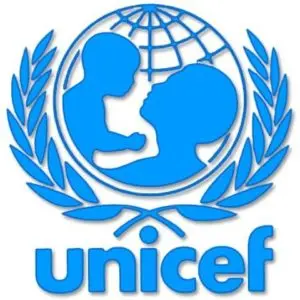The United Nations Children’s Fund has commenced a digital learning training programme for teachers in Abia State, aimed at boosting their proficiency with modern educational tools and enhancing their compliance with digital learning standards.
In the first phase of the initiative, UNICEF is targeting the training of 500 teachers, starting with an initial batch of 100 drawn from Ohafia Local Government Area. The two-day training workshop held at Enuda Primary School in Abiriba, Ohafia, marked the launch of the programme.
Speaking during the session, Education Specialist from UNICEF’s Enugu Field Office, Dr Agatha Nzeribe, said the primary aim of the training is to introduce teachers to the Nigeria Learning Passport, a digital platform created to tackle the challenge of limited access to instructional materials in Nigerian schools.
“Teachers and students using the platform can have access to developed lesson notes on different topics,” she stated, explaining that the NLP platform was introduced during the COVID-19 pandemic as a tool to bridge the learning gap. She added that NLP offers free online access to comprehensive teaching and learning materials.
Dr Nzeribe further explained that the training would help teachers adopt a blended learning approach that combines traditional teaching methods with digital tools, enabling them to deliver improved learning outcomes.
She also disclosed that the training is part of a broader initiative to equip Abia teachers and education stakeholders in preparation for the disbursement of the Global Partnership for Education System Transformation Grant. Abia State has been approved for a $7 million grant under the GPE, a World Bank-hosted multi-stakeholder partnership committed to strengthening education systems globally.
“Capacity has to be built for teachers before the up-take of the largesse,” she noted.
According to Dr Nzeribe, the current training was sponsored by IHS Towers and will be extended to teachers in other local government areas of the state.
“This is UNICEF support for Abia and we got it from IHS Towers for the implementation of NLP activities,” she said.
One of the facilitators and UNICEF Desk Officer at the Enugu State Universal Basic Education Board, Mr Benjamin Ugwuanyi, underscored the importance of digital literacy for educators in today’s tech-driven world.
“There has been a paradigm shift in the way we teach in our classrooms. We are in a technology-driven era, and we have to carry teachers along,” he said.
He described the NLP as a digital learning platform designed not only for students and teachers, but also accessible to parents and other individuals interested in learning.
“This is a digital learning platform for pupils in the classroom, for teachers that teach them, and even for parents and anybody who wishes to learn new things using the platform,” Ugwuanyi explained.
He emphasized that the platform is both free and curriculum-aligned, with content tailored to support students, particularly those in examination classes.
Some of the participants expressed appreciation for the training, saying it has enhanced their teaching capabilities. Isaac Kalu, a Basic Six teacher at Ndiuduma Ukwu Community School, Ohafia, and Mrs Georgina Otah of Enuda Primary School, Abiriba, were among those who commended UNICEF for the opportunity. They, however, appealed for support in acquiring some of the digital tools introduced during the training.
They lauded the initiative as a timely and impactful intervention that has opened new avenues for improving classroom instruction and learning experiences.












